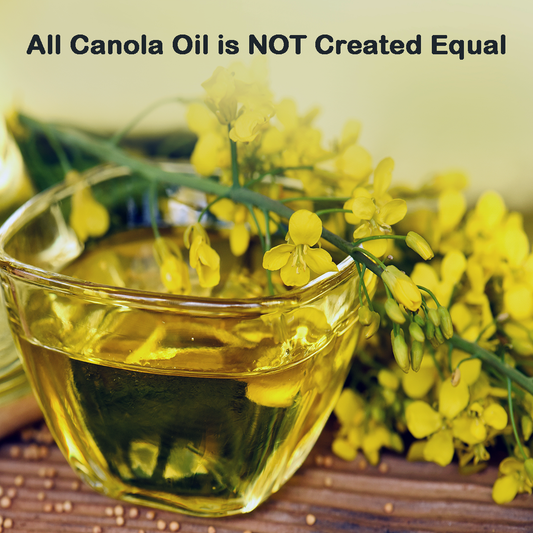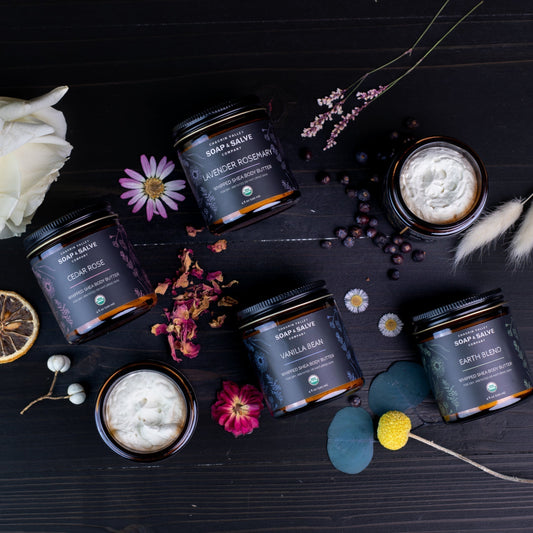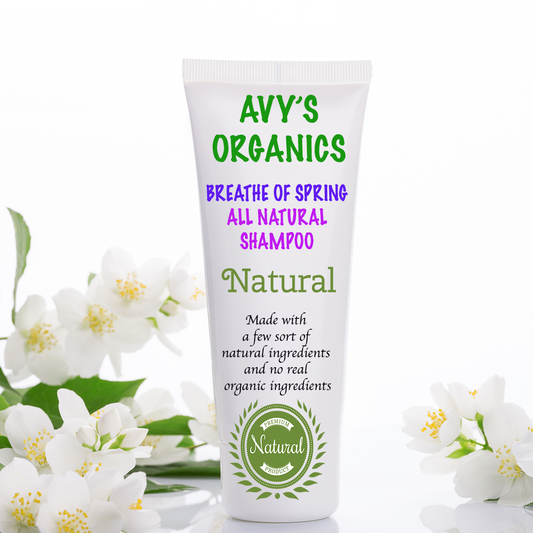At Chagrin Valley Soap We Do NOT use GMO Ingredients!
What is a GMO?
 The acronym GMO stands for Genetically Modified Organisms.
The acronym GMO stands for Genetically Modified Organisms.
It refers to any animal, plant, or microorganism that has been changed in a lab at the gene level. It is also known as “genetic engineering."
In this process, genes from one animal, plant, or microorganism are inserted into another, which irreversibly changes the genetic code, the “blueprint,” that determines all of an organism’s characteristics.
These new traits allow the “new things” to grow faster, resist insects and weed killers, and stay fresh longer.
Soybeans that are resistant to weed killers, potatoes that produce their own pesticides, and insect-protected cotton are some examples.
How Is Genetic Engineering Different From Traditional Breeding?
For centuries farmers and breeders have used selective breeding techniques with plants and animals to produce desirable traits. Although both genetic engineering and selective breeding allow humans to change a plant or animal, the mechanism for change in old-fashioned breeding techniques is VERY different from what is going on today with GMOs.
Selective breeding is a way for humans to nurture desirable traits in plants and animals. Selective breeding uses the natural process of breeding to encourage desirable characteristics in the offspring, whereas genetic engineering creates new traits.
 For example, let’s say that I have a crop of corn (see diagram). Some of my corn seems to be naturally resistant to viruses and some plants naturally produce a lot of corn (high yield).
For example, let’s say that I have a crop of corn (see diagram). Some of my corn seems to be naturally resistant to viruses and some plants naturally produce a lot of corn (high yield).
If I breed the virus resistance plants with the with the high yield plants, over time I will have a crop of virus resistant plants that yield a lot of corn.
Although I may have used human intervention to select the traits that I desire in my corn plants, I am not moving genes from one type of plant to another. (picture from: royalsociety.org)
A real example of selective breeding is the high "oleic" sunflower oil now available in your supermarket.
Through selective breeding techniques the linoleic acid, naturally present in sunflower oil, was "replaced" with oleic acid in order to make it more similar to olive oil. Although there is no such thing in nature as high oleic sunflower oil seeds, and it is man-made, it was changed via old-fashioned breeding techniques.
Old-fashioned breeding techniques are VERY different from what is going on today with GMOs. GMOs are plants or animals that have been genetically engineered with DNA from bacteria, viruses, or other plants and animals.
For a simple explanation using the corn plants, the actual gene of for virus resistance and or high yield is transferred into bacteria and the bacteria then transfer the new genetic information (DNA) to the plant cells. The plant cells that have successfully taken up the DNA are then grown to create a new plant.
Why GMOs Are A Concern?
 While proponents of genetic engineering believe that this technology will make it possible to produce enough food to ensure that everyone in the world has enough to eat, the health risks of genetically altered plants, animals and foods have not been clearly identified.
While proponents of genetic engineering believe that this technology will make it possible to produce enough food to ensure that everyone in the world has enough to eat, the health risks of genetically altered plants, animals and foods have not been clearly identified.
Some scientists believe that it is likely that genetically modified foods will trigger allergic reactions, create new toxins that will produce disease, and lead to even more antibiotic resistance.
Although you do not eat products made by Chagrin Valley, we are very concerned with the environmental impact of GMOs.
For example, farmers and environmentalists are worried that crops that are genetically engineered to be resistant to herbicides, such as soybeans, will result in heavier herbicide use, further polluting the groundwater, lakes, and rivers.
GMOs may also be toxic to organisms like bees and butterflies. Bees are extremely important in the pollination of many food crops but have become endangered due to modern agricultural techniques, such as GM crops.
Even biodiversity can be affected--the planting of GMOs means fewer weeds and wildflowers. Toxins released into the soil through GMO plants may lead to fewer soil bacteria needed to maintain healthy soil. And the list goes on.
Don't Want GMOs . . . Buy Organic!
 Since the U.S. National Organics Program forbids the use of genetic modification in products to be certified as organic.
Since the U.S. National Organics Program forbids the use of genetic modification in products to be certified as organic.
This means an organic farmer can't plant GMO seeds, an organic cow can’t eat GMO alfalfa or corn, and an organic manufacturer can’t use any GMO ingredients in its products.
Purchasing organic is a great way to lower your exposure to GMOs.
Chagrin Valley Soap is a USDA Certified Organic company.
We are required to submit documentation that ALL of our ingredients, even our "non-organic ingredients," were produced without the use of genetically modified organisms (GMOs).

Why We Became a Certified Organic Company
What Do All of the Organic Labels Mean?
USDA Certified Organic Skin Care


